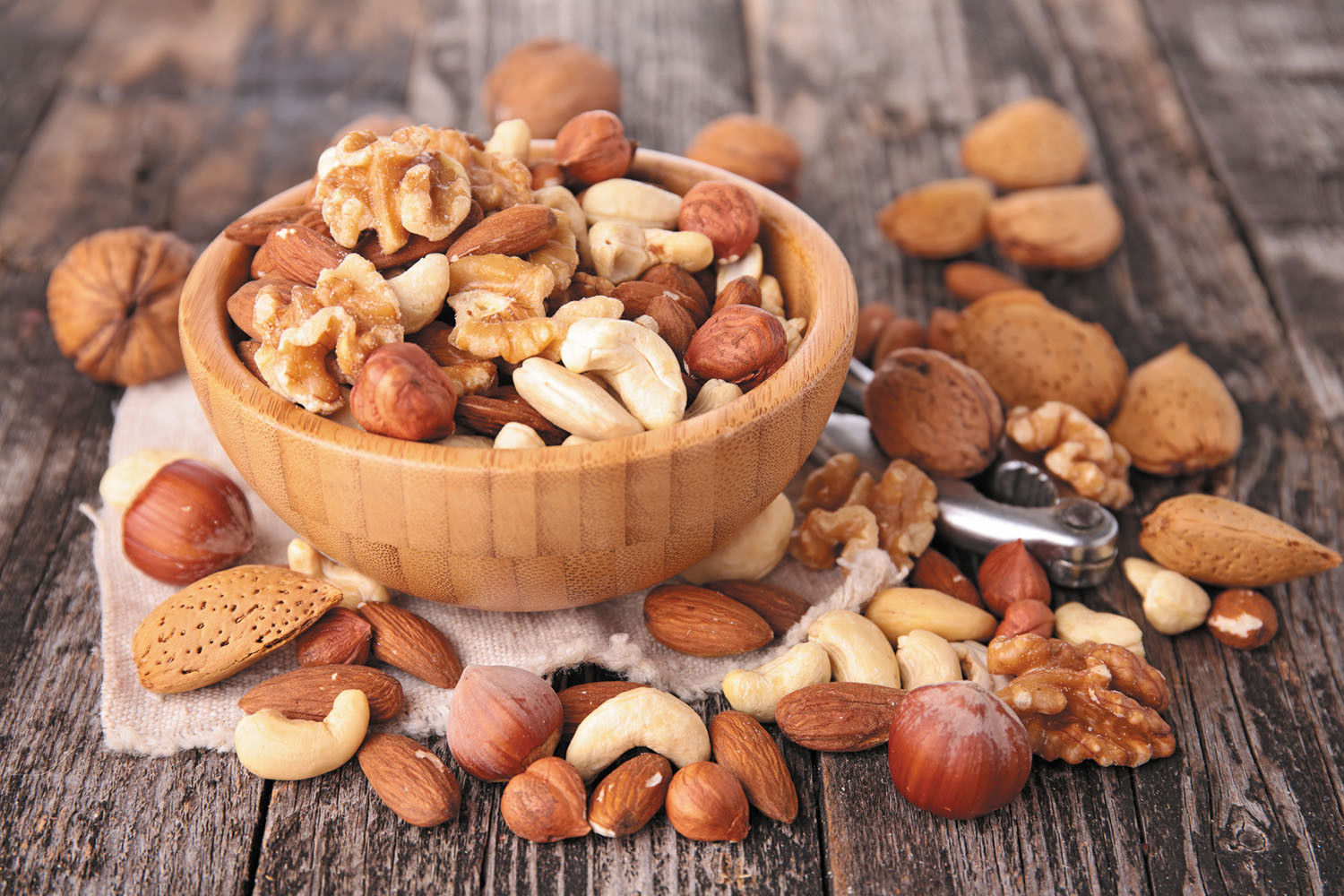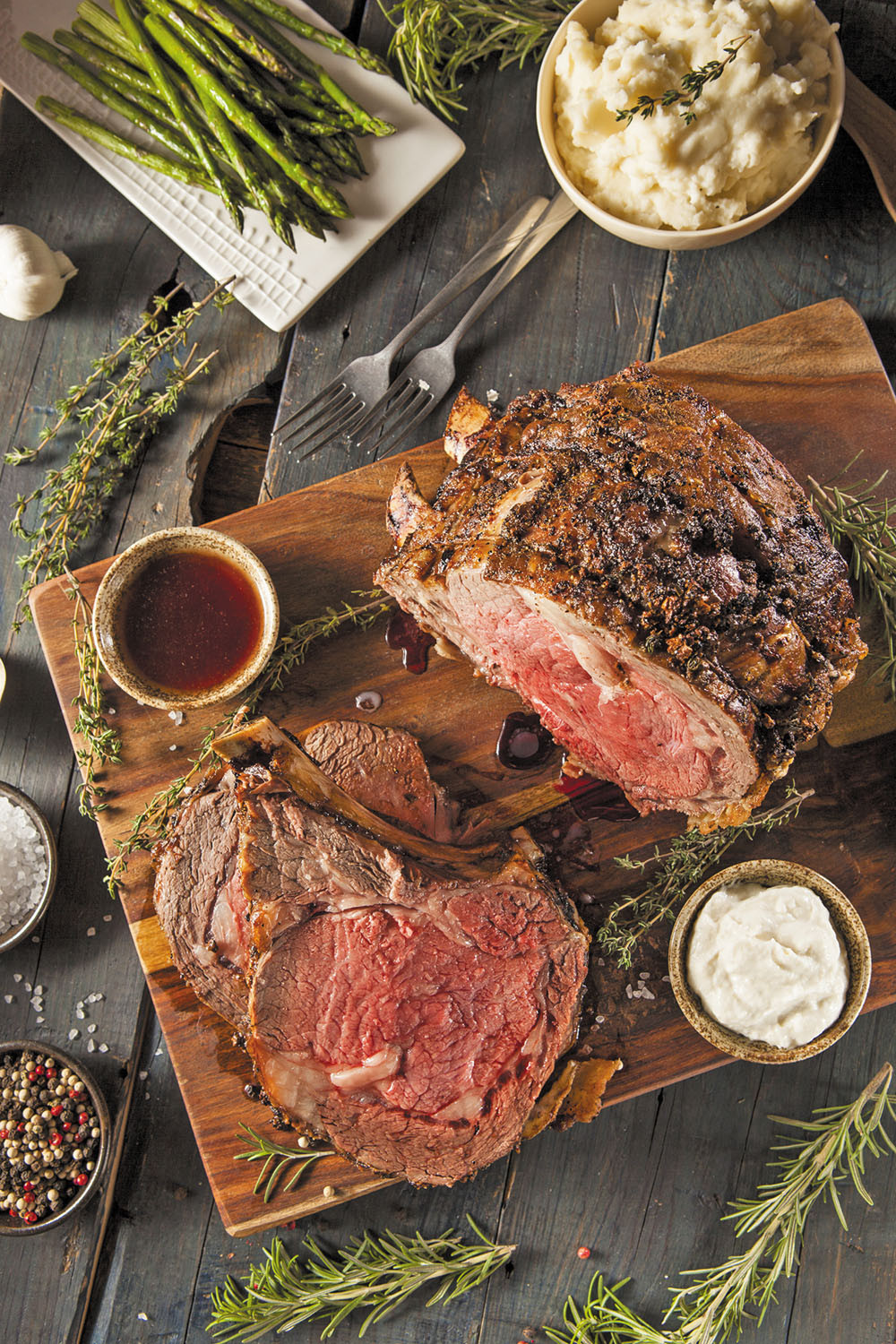
Salmonella is sneaky: Watch out

Two jobs may lower the odds of dying from Alzheimer's disease — but why?

Mastitis: What to do when your breasts are painfully inflamed

How — and why — to fit more fiber and fermented food into your meals

UTI in older women: Why postmenopausal women are susceptible to urinary tract infection, and what to do about it

Can a routine vaccine prevent dementia?

Some adults may need a measles booster shot. Who should get one and why?

Less butter, more plant oils, longer life?

Healthier planet, healthier people

Counting steps is good — is combining steps and heart rate better?
Staying Healthy Archive
Articles
What has the most impact on longevity?
Ask the doctor
Q. My family tends to be long-lived. I hear longevity is due to our DNA, and I also hear it's due to lifestyle. Which is it, and how do they make us live longer?
A. Both DNA and lifestyle can affect longevity, and they both do so in the same way: by altering our body chemistry. DNA controls the production of each of the natural chemicals in our body. It controls both the shape (and, hence, the effectiveness) of each chemical, and also controls how much of that chemical is made. So, it's not surprising that DNA could affect longevity. In the past 20 years, astonishing progress has been made in understanding the body chemistry that controls the aging process. And that knowledge has allowed scientists to extend the life of various animals through simple genetic manipulations.
Tips to minimize the risks of anesthesia
Careful planning may help you avoid side effects.
It's always concerning when the doctor says you need a procedure that requires anesthesia. On top of worries about the procedure itself, you may wonder how you'll react to anesthesia, especially now that you're older. The answer is complicated.
Aging changes everyone's basic physiology. Anesthesia introduces some risk, but less so than the risk from underlying health conditions, the surgical procedure itself, and the care you receive after surgery," says Dr. Angela Bader, an anesthesiologist and founding director of the Weiner Center for Preoperative Evaluation at Harvard-affiliated Brigham and Women's Hospital.
Pickleball pleasures and pitfalls
The game requires agility and quick thinking. But it can leave you in a pickle if you overdo it or fall.
One of the fastest growing and popular sports among older adults is easy to play and lots of fun. But pickleball, with its funny name, comes with some serious risks. "It has a quick pace and a lot of stops, starts, and changes in direction that can lead to leg injuries and falls," says Clare Safran-Norton, clinical supervisor of rehabilitation services at Harvard-affiliated Brigham and Women's Hospital.
What is it?
Pickleball is a hybrid racquet sport that combines aspects of tennis, table tennis, and badminton. The game is played indoors or outdoors on a small court (20 feet by 44 feet, about the size of a badminton court) resembling the top of a giant Ping-Pong table. The net dividing the court is a few inches shorter than the net on a tennis court.
Eating nuts: A strategy for weight control?
News briefs
Nuts are rich in healthy fat and calories, so you may not think of them as tools for weight control. But nuts may actually help in the battle of the bulge, suggests a Harvard study published online Sept. 23, 2019, by BMJ Nutrition, Prevention, and Health. Researchers analyzed questionnaire responses on dietary habits, physical activity, and weight changes from about 145,000 middle-aged and older men and women. People who went from never eating nuts to eating a daily average of at least half a serving (about half a handful) were 16% less likely to become obese over a four-year period compared with people who didn't eat nuts at all. Substituting a half serving of nuts per day for red meat, processed meat, French fries, desserts, or potato chips was also associated with less weight gain. "Nuts have protein and fiber which help us feel full longer and offset cravings for junk food. Although nuts are high in calories, up to 20% of calories from nut consumption will be excreted from our body," says Dr. Xiaoran Liu, one of the study authors and a research associate with the Harvard T.H. Chan School of Public Health.
Image: margouillatphotos/Getty Images
Genetic test kits don’t have all the answers
News briefs
It's tempting to try a direct-to-consumer (DTC) genetic test kit that predicts your risk for developing certain diseases, like Alzheimer's or Parkinson's. The kit is shipped to your home, where you collect cells (typically with a cheek swab or a saliva collection tube) and then send them to a lab for DNA analysis. But a report from British researchers, published in The BMJ on Oct. 16, 2019, warns that the tests commonly produce misleading predictions of high or low genetic risk for disease. In other words, a positive result for a particular gene doesn't necessarily mean you'll develop a related health problem, and a negative result doesn't automatically mean you'll dodge a particular condition. Study authors say that interpreting genetic data is complex and depends on the context of your individual and family medical history. If you want to try a DTC test, bring the results to your physician for more insight. If your doctor determines that further investigation is warranted, he or she can refer you for genetic testing that's more comprehensive than DTC tests, performed by an accredited laboratory. Those test results may be combined with genetic counseling to help you understand what to expect and what the information might mean for your health or the health of your family members.
Photo: sanjeri/Getty Images
Hidden dental dangers that may threaten your whole body
Tooth decay and gum disease can lead to serious health problems, including brain or heart infections.
A growing number of older adults have something to smile about: research shows they're keeping their teeth longer. While that makes chewing and talking easier and staves off malnutrition and the discomfort of dentures or missing teeth, it also means you need to be more vigilant than ever about preventing dental problems — including some that can have life-threatening complications.
Tooth decay
One in five adults ages 65 or older has untreated tooth decay (a cavity). This develops when food and bacteria form plaque that sticks to teeth and produces toxins that break down a tooth's outer layer (enamel).
Can you explain the red meat debate?
Ask the doctor
Q. Just before the holidays, I heard that a study said it was okay to eat red meat. Previously, you've said just the opposite. Help!
A. We got lots of letters like yours. The bottom line is that we stick by our longstanding advice: avoid frequent meals of red meat, and especially processed meat.

Salmonella is sneaky: Watch out

Two jobs may lower the odds of dying from Alzheimer's disease — but why?

Mastitis: What to do when your breasts are painfully inflamed

How — and why — to fit more fiber and fermented food into your meals

UTI in older women: Why postmenopausal women are susceptible to urinary tract infection, and what to do about it

Can a routine vaccine prevent dementia?

Some adults may need a measles booster shot. Who should get one and why?

Less butter, more plant oils, longer life?

Healthier planet, healthier people

Counting steps is good — is combining steps and heart rate better?
Free Healthbeat Signup
Get the latest in health news delivered to your inbox!
Sign Up











